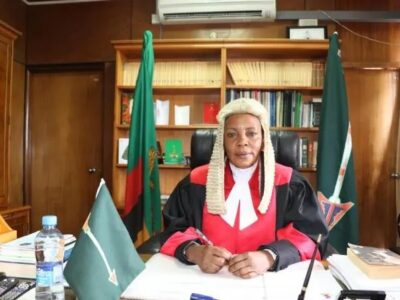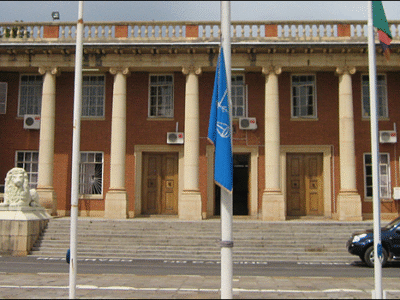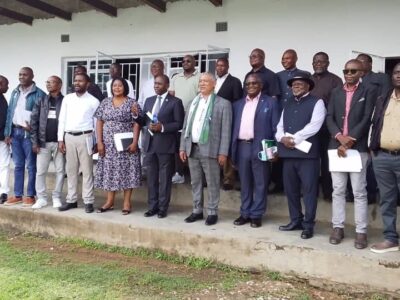The ongoing legal battle between former Vice-President, Enock Kavindele Senior and his son, Enock Kavindele Junior, over disputed properties has escalated, with the Lusaka High Court now directing both parties to resolve the matter through mediation.
Kavindele Junior initiated the lawsuit, demanding that his father hand over the Certificates of Title for three properties—Lot No. 7273/M, Lot No. 7290/M, and Lot No. 7291—and refrain from any interference.
In his defense, Kavindele Senior insisted he purchased the properties nearly 30 years ago for his 99-year-old mother, Maria Senda.
Read More : Kavindele family feud over property reaches Lusaka High Court
He maintained that his ownership claims are legitimate and that his son’s actions are unwarranted.
Presiding Judge Gertrude Chawatama stated the importance of mediation in resolving the dispute, warning of potential consequences for non-compliance.
“If the plaintiff or their advocate fails to appear at mediation, the case may be dismissed. Similarly, if the defendant or their advocate fails to show up, a default judgment could be entered,” the court order stated.
This directive underscored the court’s commitment to an alternative resolution mechanism to avoid prolonged litigation.
The property dispute took a dramatic turn as Kavindele Senior accused his son of coercion and fraudulent activities.
He alleged that Senda’s Power of Attorney, which Kavindele Junior relied upon, was not granted freely.
Kavindele Senior further claimed that his son orchestrated a dubious sale agreement to dispose of a three-acre portion of Lot No. 7273/M for K3,750,000.
The buyers were identified as Yanjie Yan and Yu Lin.
He argued that the transaction was unauthorised and sought to protect the properties from what he described as exploitative practices.
The mediation process would aim to settle the dispute amicably, with the court closely monitoring compliance.
The case reflects the complexities of property ownership disputes within families and the role of legal frameworks in addressing such conflicts.
The outcome of the mediation would determine the future of the disputed properties and the relationship between the two parties.
WARNING! All rights reserved. This material, and other digital content on this website, may not be reproduced, published, broadcast, rewritten or redistributed in whole or in part without prior express permission from ZAMBIA MONITOR.













Comments